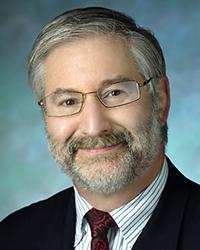Loading Complete

Russell Louis Margolis, MD
Psychiatry
Johns Hopkins Affiliations
- Johns Hopkins School Of Medicine Faculty
31 Insurances Accepted
View allAbout
Professional Titles
Primary Academic Title
Background
Additional Academic Titles
Research Interests
Research Summary
PubMed
Selected Publications
Memberships
Locations
- Johns Hopkins Bayview Medical Center
- 5500 East Lombard Street, Baltimore, MD 21224
- phone: 410-550-0104
- fax: 410-550-1748
- The Johns Hopkins Hospital
- 600 North Wolfe Street, Osler 320, Baltimore, MD 21287
- phone: 410-955-5212
- fax: 410-955-0152
Expertise
Education
Johns Hopkins University School of Medicine
Residency, Psychiatry, 1990Johns Hopkins University School of Medicine
Medical Education, MD, 1986Board Certifications
American Board of Psychiatry and Neurology
American Board of Psychiatry and Neurology, 1991Insurance
Johns Hopkins providers participate in many commercial health insurance plans. To confirm coverage of your specific physician or provider, please contact your insurer directly. For more details, please review our Insurance Information.
Search plans
- Aetna
- Amerigroup District of Columbia
- AmeriHealth Caritas District of Columbia
- Beech Street
- Blue Cross Blue Shield Federal Employee Program (FEP)
- CareFirst
- Cigna
- Evernorth Behavioral Health
- First Health
- Geisinger Health Plan
- HealthSmart/Accel
- Humana
- JAI Medical Systems
- Johns Hopkins Health Plans
- Kaiser Permanente
- KeyCare
- Maryland Physicians Care
- Medicaid Maryland
- Medicare Maryland
- MedStar Family Choice District of Columbia
- MultiPlan
- Pennsylvania's Preferred Health Networks (PPHN)
- Point Comfort Underwriters
- Private Healthcare Systems (PHCS)
- Provider Partners Advantage HMO SNP Medicare Advantage
- South Central Preferred (SCP)
- Superior Vision
- TRICARE (Humana Military East)
- UnitedHealthcare
- Veteran Affairs Community Care Network (Optum-VACCN)
- Wellpoint (Amerigroup MD)
